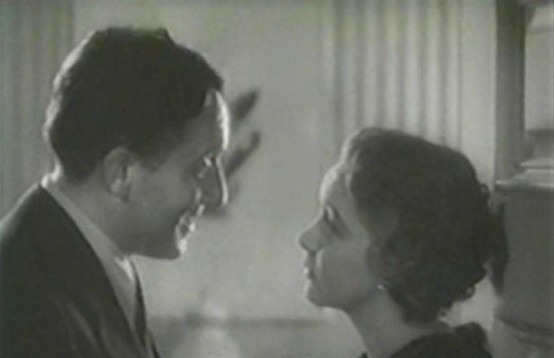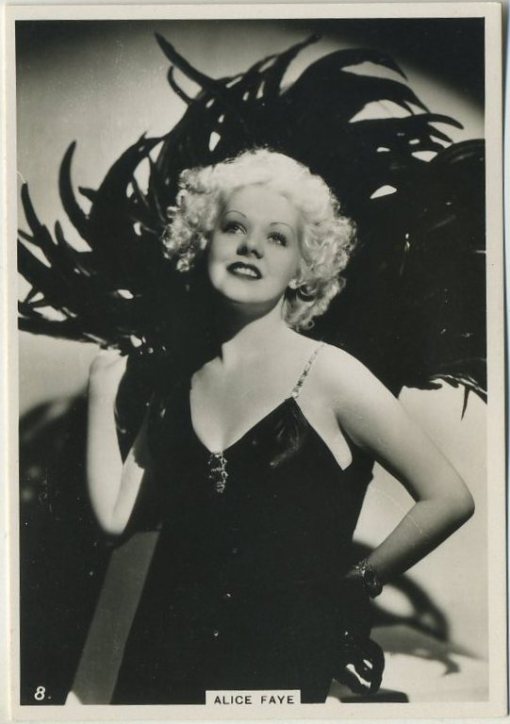Now I’ll Tell introduces itself as “the story of a girl who married a gambler,” and maybe that’s true of Mrs. Arnold Rothstein’s book, but the movie is all about the gambler. Spencer Tracy poses as Murray Golden, a fictionalized version of King of the Roaring ‘20s Rothstein, who risks it all, over and over again, from 1909 through 1928.
Golden’s philosophy is told at the start, in Saratoga in 1909, when he assures his friend Jack (G.P. Huntley), “You can do anything you can get away with. You’re only wrong when you fail.” For several years, Murray Golden is always right. By 1914 he’s established a fashionable gambling house in New York, where the tables buzz with action all night, while his wife Virginia (Helen Twelvetrees) sits quietly with a book in their upstairs apartment.
She reminds him that he told her he’d quit when he made $200,000. Of course, no problem, but when Virginia points out Murray already has over $300,000 he revises his promise to half a million. Little does Murray know that his tables will earn another $330,000 that very night, shooting him well over the promised figure and forcing him to double the goal to a million. “I’m the wife of a gambler,” Virginia says. “I haven’t any friends.” She’s lonely, and all she has is Murray’s love. “Don’t let anything happen to it, will you.”
But it’s like Murray told Jack back at Saratoga in ‘09 after working an early scheme to bet $200 he didn’t have: “I’m a liar.” A lucky one, but a liar nonetheless. Despite a loyal wife, who he insists he loves, Murray begins an affair with cabaret singer Peggy Warren (Alice Faye). He’s fond of Peggy and enjoys hearing her sing, but nonetheless keeps her at a certain arm’s length. Peggy wants to marry him, but Murray wouldn’t give Virginia’s “little finger for twenty Peggys.” Even after they’re together several years, Peggy only finds trouble when she mentions Virginia: “When you talk about her, you step out of your class,” Murray says.
The year 1919 flashes across the screen and, this being Arnold Rothstein’s story, we’re ready for some baseball and the Black Sox scandal. If that’s what you’re after, go rent Eight Men Out (1988). It never happens here. Not wanting to get too close to the truth, a crooked boxing match stands in for the World Series.
Murray’s arch rival, a weaselly gambler named Mossiter (Robert Gleckler), has rigged the big fight so that the favorite, Traylor (Ray Cooke), takes a dive in the fifth round. Word of this trickles to Murray who uses big bucks to sway a previously honest fighter, Traylor’s opponent, Curtis (Frank Marlowe), to go down even earlier, in the second round. The fight comes off as Murray planned, making him a very rich man, but costing Traylor his life and sending Curtis into a longterm alcoholic depression. “Don’t you feel a little soiled tonight?” Jack asks, when he phones Murray to tell him Traylor’s fate.
Despite a gigantic haul, it’s an all around bad night for Murray. Virginia went to the fight with some friends and overheard gossip about her husband and Peggy Warren. Murray uses his right hand man Freddie (Hobart Cavanagh) to carry on the deceit and smooth matters over for the moment, but from that point forward Virginia knows that Murray has betrayed her.
When Murray’s luck turns, it’s a sharp downward slide. A visit to an old boyhood friend, Tommy (Henry O’Neill), now a cop who he’s trying to bribe, exposes Murray to an honesty and happiness he has never known. He plays with his old friend’s children, one of who is played by Shirley Temple, in a bit role just a few months from achieving stardom, but is rebuffed when he offers to buy them some toys from the shop down the block. “You know, I kind of pity you,” Tommy tells him. “I’ve got so much, and you’ve got so little.” It strikes a chord with Murray, but before it can do anymore a phone call comes through: his wife has been kidnapped.
Murray quickly loses everything: Peggy, Virginia, his wealth, and his luck. Mossiter now bests him with some regularity. All is lost, until Murray has one last great idea that will at least take care of the most important thing he ever lost, Virginia.
A strong role for Tracy at Fox that’s been unfairly neglected over the years. Never released on home video, but perhaps Fox Cinema Archives will remedy that in the future. The copy I have is very choppy, so count me as a potential buyer. Now I’ll Tell would be a worthy addition to Fox’s collection alongside previously released Tracy titles such as Young America, Me and My Gal (both 1932), The Power and the Glory (1933), and Dante’s Inferno (1935).
The actresses supporting Tracy don’t fare nearly as well as he does. Despite an introduction teasing this as Virginia Golden’s story, Helen Twelvetrees doesn’t get a lot to do until the very end, though she has a couple of strong scenes alongside Tracy then. For most of the movie Twelvetrees is overshadowed by Alice Faye’s performance in the showier part of Golden’s girlfriend. Now I’ll Tell is only Faye’s second movie, so all things considered she gets a nice showcase here.
Now I’ll Tell was the only film directed by writer Edwin J. Burke, who also adapted Mrs. Rothstein’s story.
My IMDb rating: 7/10.





Leave a Reply